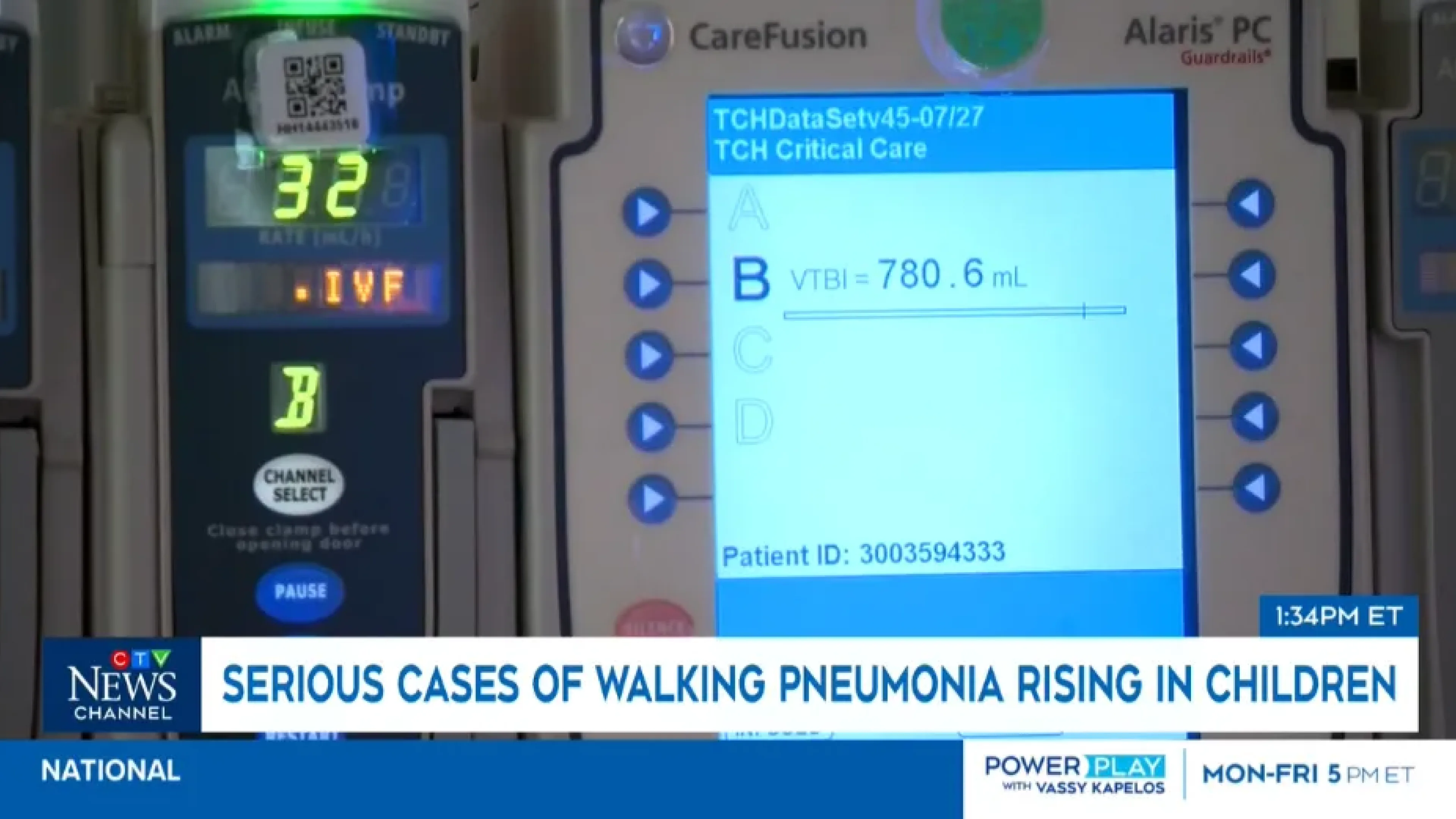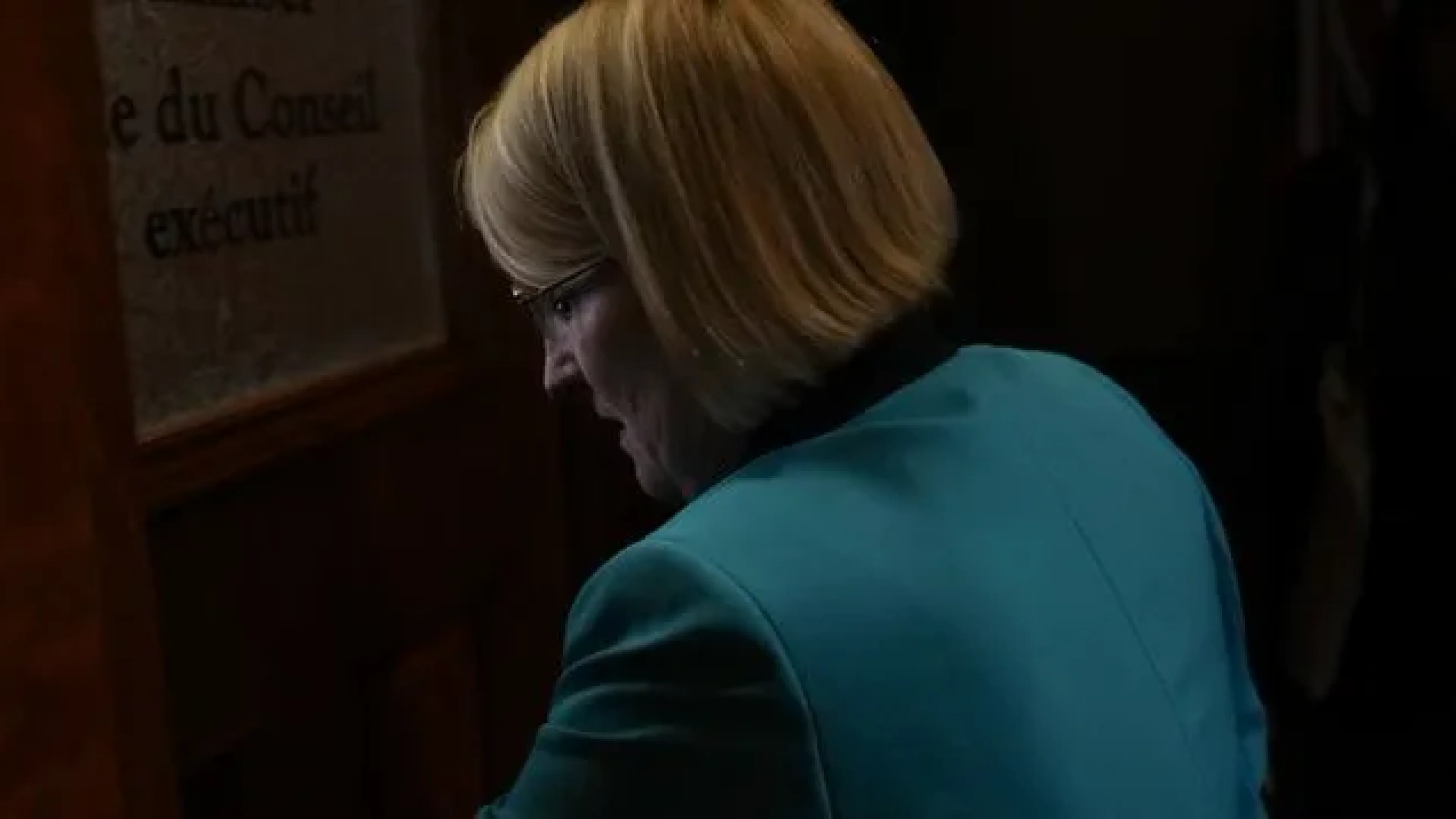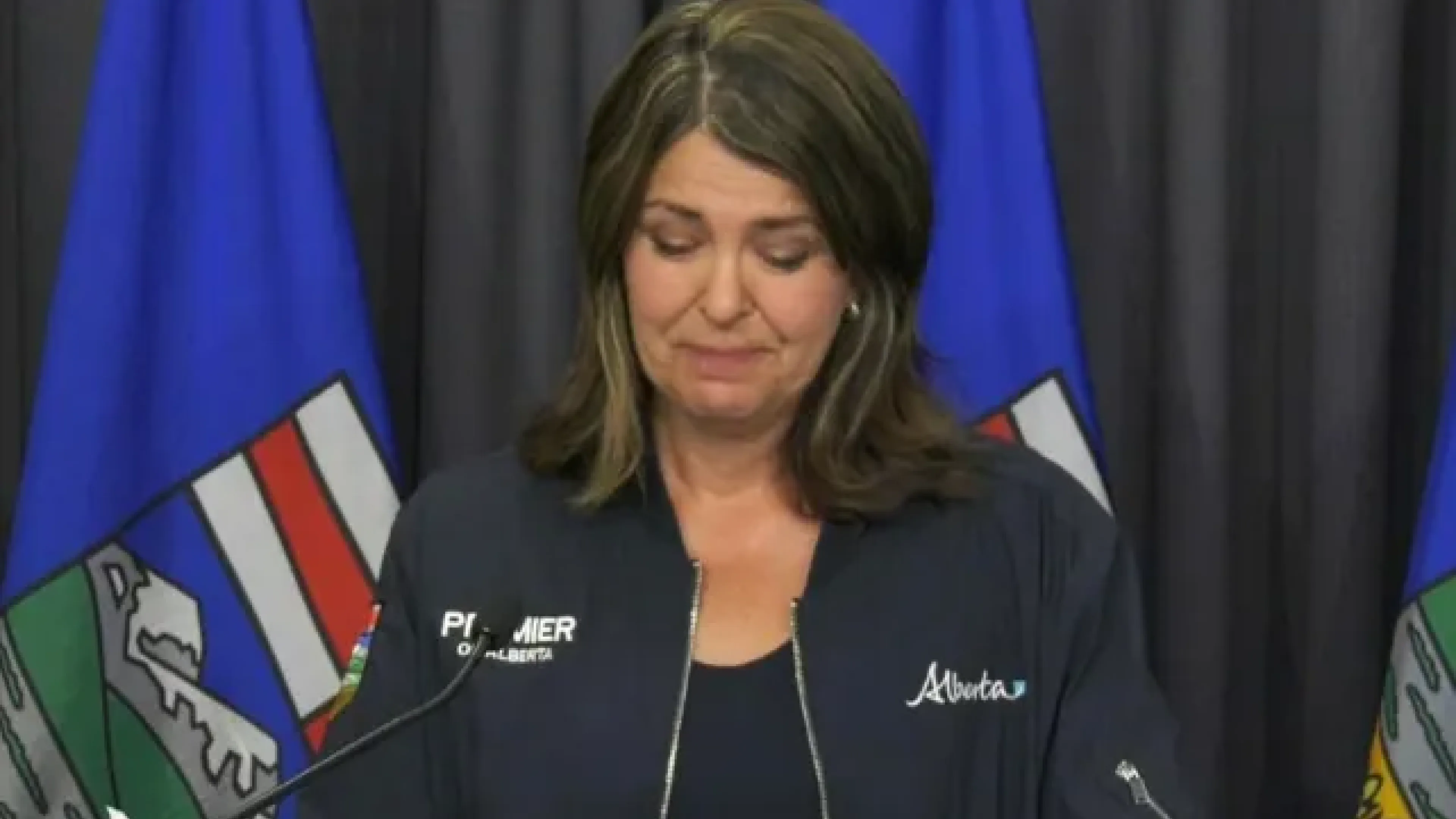You’re reading the web version of our email briefing on health policy, science and medical news. Sign up to get the next one.
Hi Healthwatchers, 🩺👀👩⚕️
This week’s top story demands extra attention, so I’m giving it some added real-estate. There’s plenty to digest today, so let's just dive right in and make sense of it all.

Children's hospitals across Canada and the U.S. are seeing increases in severe cases of mycoplasma pneumonia, especially in infants and toddlers.
Why it's important: Patterns in severity and age distribution for mycoplasma haven’t returned to pre-pandemic norms. Hospitalizations for pneumonia nearly tripled in 2023 relative to the year before, and we’re on track for another big year.
There are competing theories as to why this is happening, but you’ve probably only heard one.
The idea with the most share of voice is that public health restrictions in 2020-2021 decreased herd immunity for all other pathogens, leading to epidemiological irregularities today. This line of thought is known as “immunity debt.”
But there's another theory that's a bit tougher to spell out.
There is now a large body of research describing lingering impacts on the human immune system from infection with COVID.
The virus is known to trigger long-lasting epigenetic changes in the stem cells responsible for producing all blood and immune cells. Prolonged immune dysregulation after recovery can cause ongoing inflammation, impairing the body's ability to fight off other things.
These effects have been demonstrated to persist for up to 8 months, but this is likely an underestimate.
Public health authorities acknowledge these immune system impacts, as well as how little we currently understand them. But regrettably, mycoplasma isn’t reportable, making it hard to track, let alone to visualize synchronicity between waves of COVID and waves of mycoplasma, which, if it exists, would bolster this case.
On the subject of what's behind mycoplasma's rise, epidemiologist Raywat Deonandan said, "no one knows for sure, and any expression of certainty is irresponsible."
Read more…

The federal government has new legislation requiring crisis pregnancy centres to clearly state if they do not offer abortion services or referrals, or risk losing charitable status.
Why it's important: Minister Marci Ien, who introduced the bill, says it addresses deceptive practices some centres are using to delay or deter access to abortion.
The move has been praised widely by reproductive health advocates and drawn criticism from pro-life groups, who say the government is simply trying to wedge the Conservatives on the issue of abortion ahead of the election.
Read more…

Ontario’s government has voted down a Liberal bill to stop nurse practitioners from charging for primary care services, arguing that federal action is needed first.
Why it's important: The bill aimed to address concerns about growing inequity in healthcare access, as nurse practitioners increasingly charge for services otherwise covered by OHIP.
Adil Shamji’s proposal would have integrated NPs into the public system, but the government fears an Ontario-only ban on patient fees would drive NPs out-of-province.
Read more…

Premier Smith's proposed amendments to the Alberta Bill of Rights would enshrine the right to refuse vaccines and medical treatment.
Why it's important: The bill could easily undermine efforts to protect vulnerable populations and seriously compromise the government's ability to respond to emerging health threats.
Legal experts warn it could prevent hospitals from mandating vaccines for staff, endangering patients and weakening defenses against future outbreaks. The bill also risks spawning costly legal battles. For instance, if a hospital tries to enforce staff vaccine requirements, healthcare workers could use the amended Bill of Rights to contest these mandates in court.
Read more…

The CMA is urging governments to eliminate sick note requirements for short-term illnesses, arguing they waste healthcare resources and burden family doctors.
Why it's important: Ending sick notes could prevent up to 12.5 million unnecessary clinic and ER visits each year.
Abacus survey data indicates nearly one-third of working Canadians have been asked for a sick note annually. Doctors emphasize the inefficiency and administrative strain these requests cause, diverting attention from patients who truly need medical care. While some employers worry about absenteeism, the CMA suggests alternatives like self-attestations or return-to-work interviews.
Read more…
And that’s your Weekly Dose!
If you found this edition enlightening, why not share it?
In a perfect world, sharing knowledge can (and should) outpace the spread of diseases.
See you in seven days,
Nick Tsergas, Editor
Canada Healthwatch
[email protected] | canadahealthwatch.ca
Stay informed.
On the most important developments in Canadian health.
Get Canada’s essential briefing on health policy, science, and system change. Get Briefing